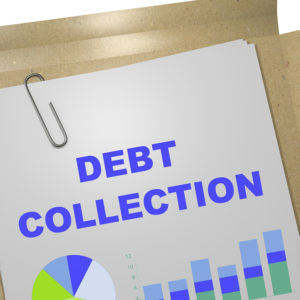February marks nearly a year since we first heard of the COVID-19 virus, and eleven months since much of the country stopped amidst lockdowns and quarantines. Since that time, the U.S. has seen businesses permanently close, loved ones lost and Americans struggle with unemployment, homelessness, and hunger. While there is optimism in some quarters about the state of the national economy, according to a survey by McKinsey over half of U.S. consumers do not expect their routines to return to normal until at least this summer.
One truth, regardless of whether the globe is fighting a pandemic or enjoying an economic boom, is that there will always be Americans struggling – in many cases in silence – with their finances. Millions have suffered beneath the weight of tens or even hundreds of thousands of dollars of debt, from mortgages, credit cards, student loans, and medical bills. And once a consumer trips down the slippery slope of debt, it is challenging to climb back up, especially without a helping hand to guide the way through unfamiliar, and occasionally hostile territory.
But there are some options for consumers who are struggling with overwhelming debt. The American Fair Credit Council (AFCC) released the independent “2020 Regan Report” which illustrates how one pathway – that of debt settlement – offers a simple and substantive benefit to American consumers struggling under the weight of unsecured debt. Debt settlement works by allowing companies to partner with Americans who find themselves awash and overwhelmed by unsecured debt through negotiating with their creditors to lower the amount they owe, help them pay off that debt, and return to financial freedom.
Most importantly, according to the report, debt settlement helps consumers hold onto their hard-earned money. On average, debt settlement saves $2.64 for every $1 in fees paid, with more than 95 percent of all clients realizing savings in excess of fees. For the typical settlement client, who owes more than $25,000 in unsecured debt and is already behind on at least one, and, in many cases, all of the accounts they hold, this aid cannot be discounted in their struggle to regain control of their finances.
Before any consumer is accepted and enrolls in a debt settlement program, they must first demonstrate financial hardship, such as a household loss of income, a medical emergency, or a life event like a divorce, that calls into question their ability to make even their minimum monthly credit card payments. In order to ensure they have the best chance to complete their prescribed – and personalized – debt settlement regimen, companies do a deep dive into their potential clients’ pocketbooks, eventually accepting less than one out of every four who apply. Once enrolled, clients have complete control of their funds and are free to leave the debt settlement program of any AFCC member at any time, for no charge. Additionally, AFCC member companies are committed and required through their membership to not charge a fee to consumers for their services until a debt has been negotiated to the consumer’s satisfaction. This standard of protection is recognized by the Federal Trade Commission (FTC) as the safest, pro-consumer method of providing debt settlement services.
During such uncertain times, it is imperative that all Americans are aware of and offered access to all potential options with the chance to end their debt problems. Debt settlement has shown consistent success at helping consumers find their way out of desperate financial circumstances with over $1.65 billion saved annually through the practice. As the pandemic continues and more Americans start to grapple with the ongoing economic ramifications, we need to keep the door open to practices with proven results like debt settlement that have been the go-to choice for hundreds of thousands in need.

